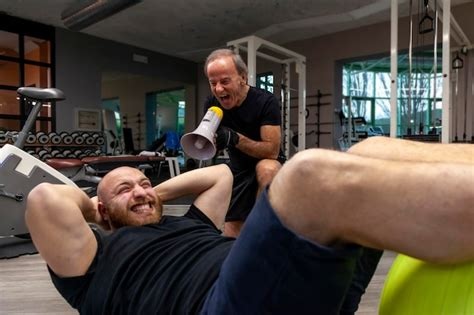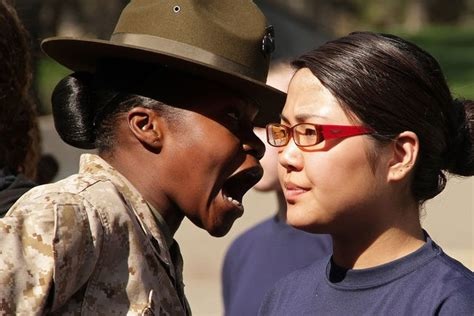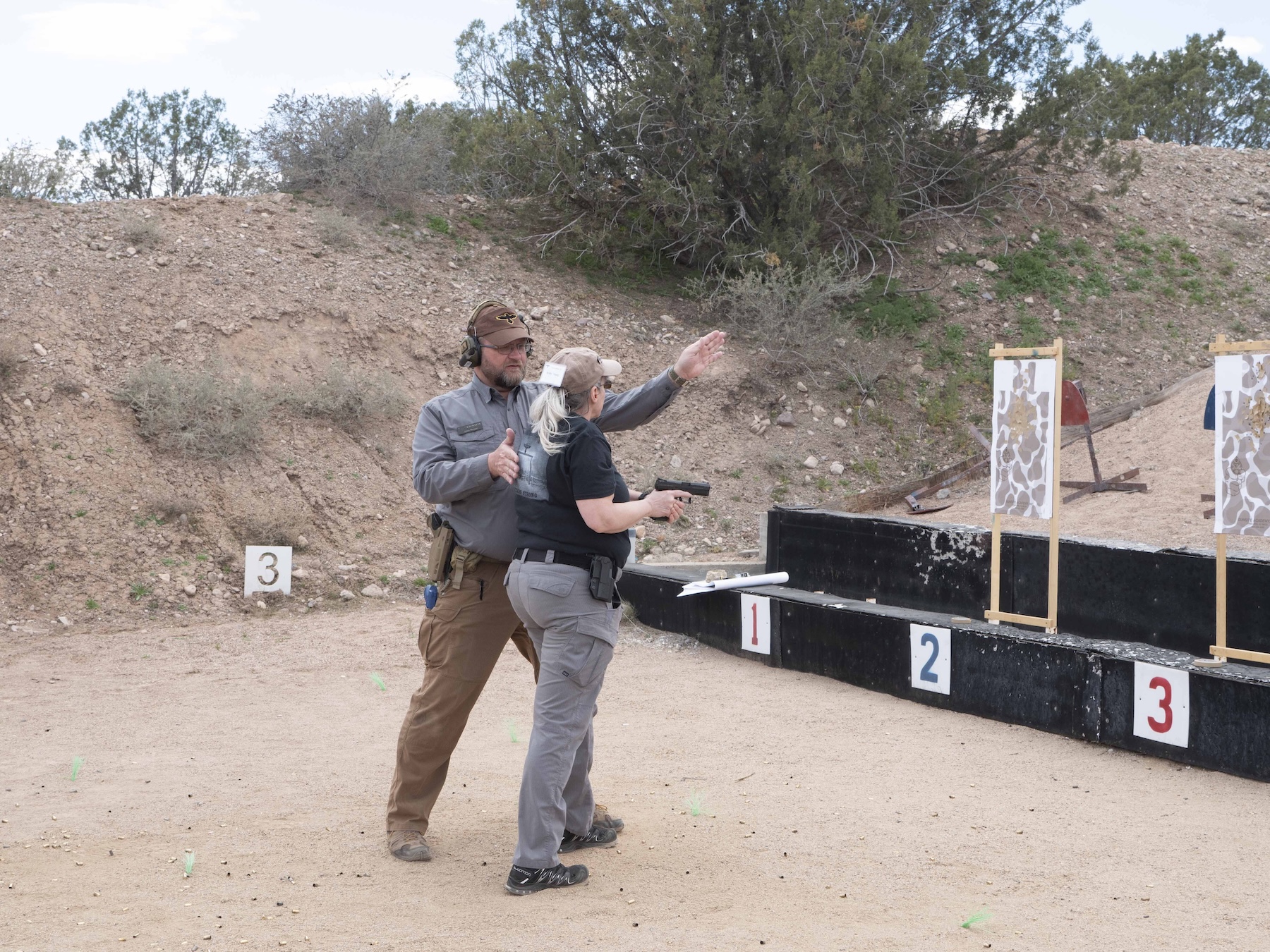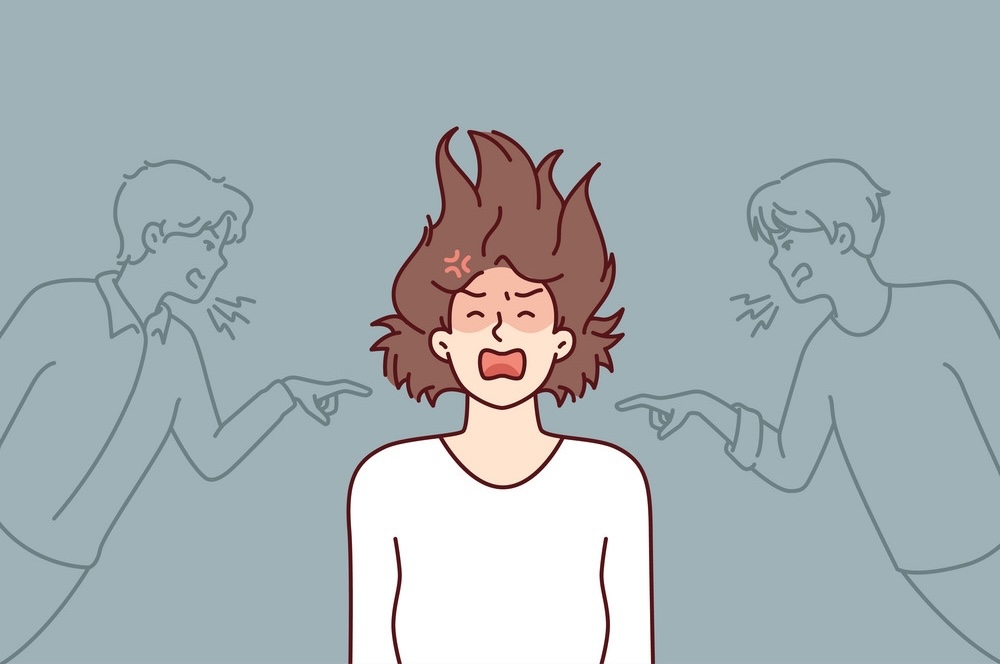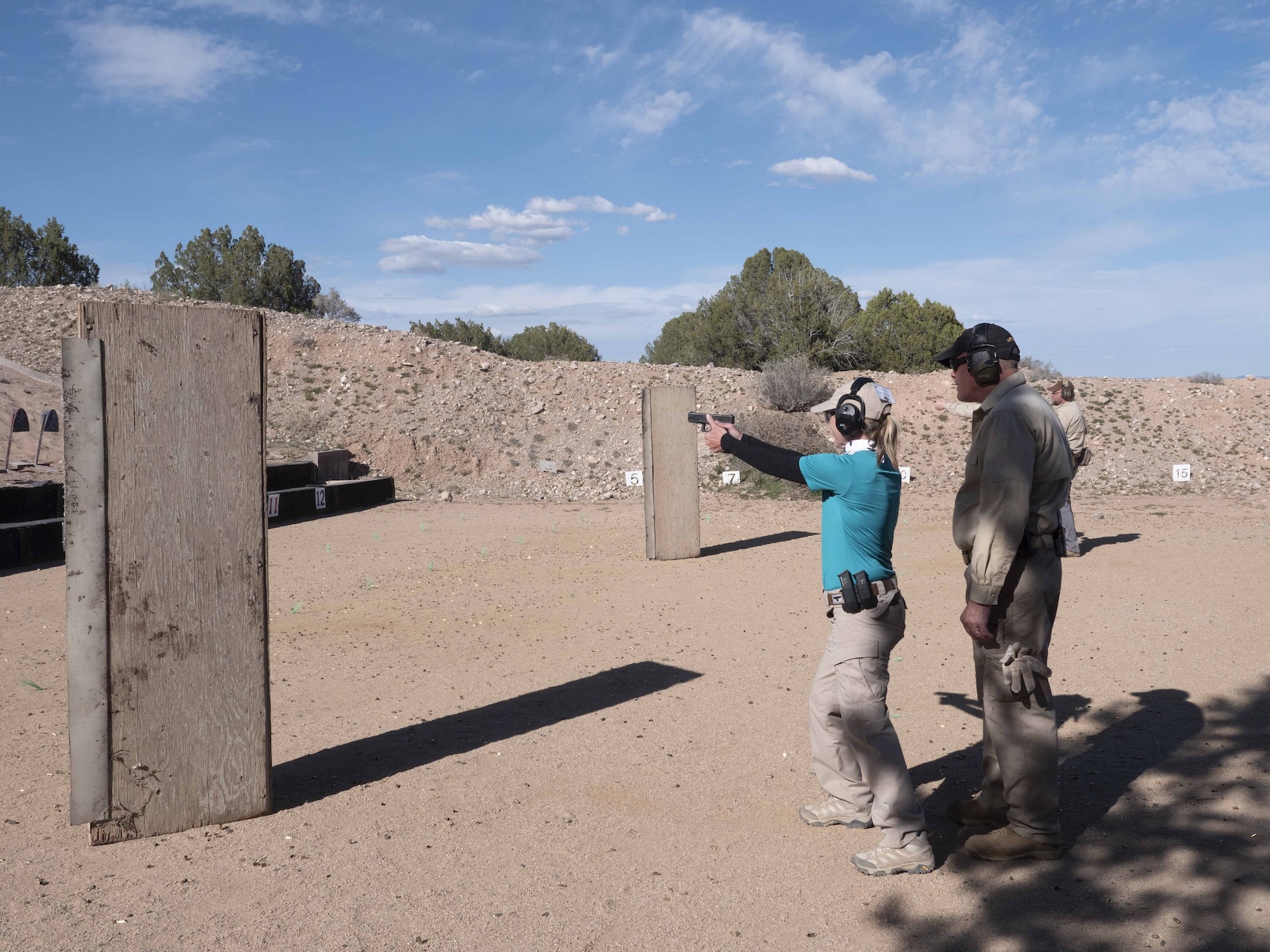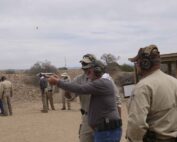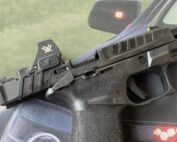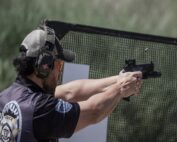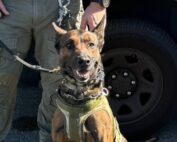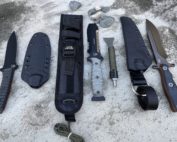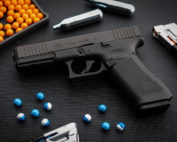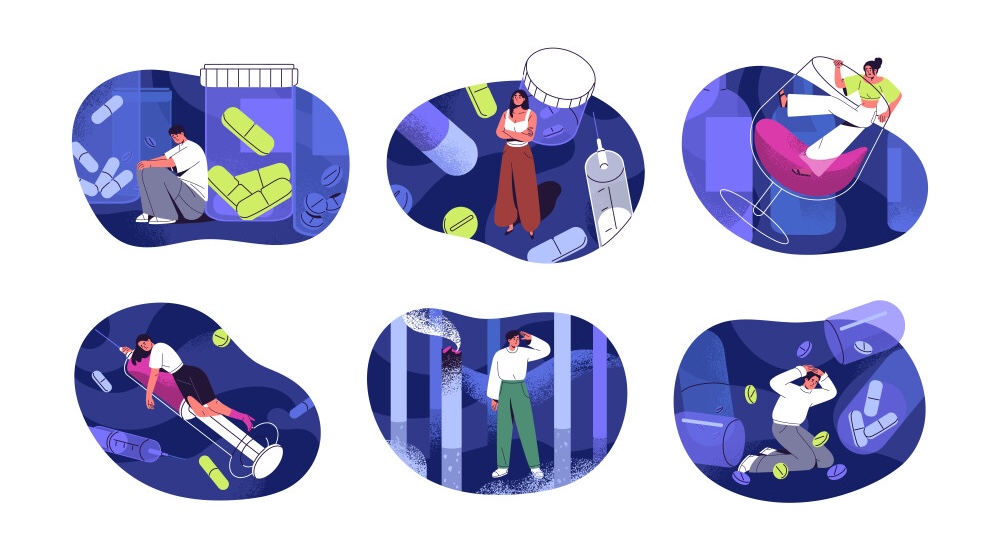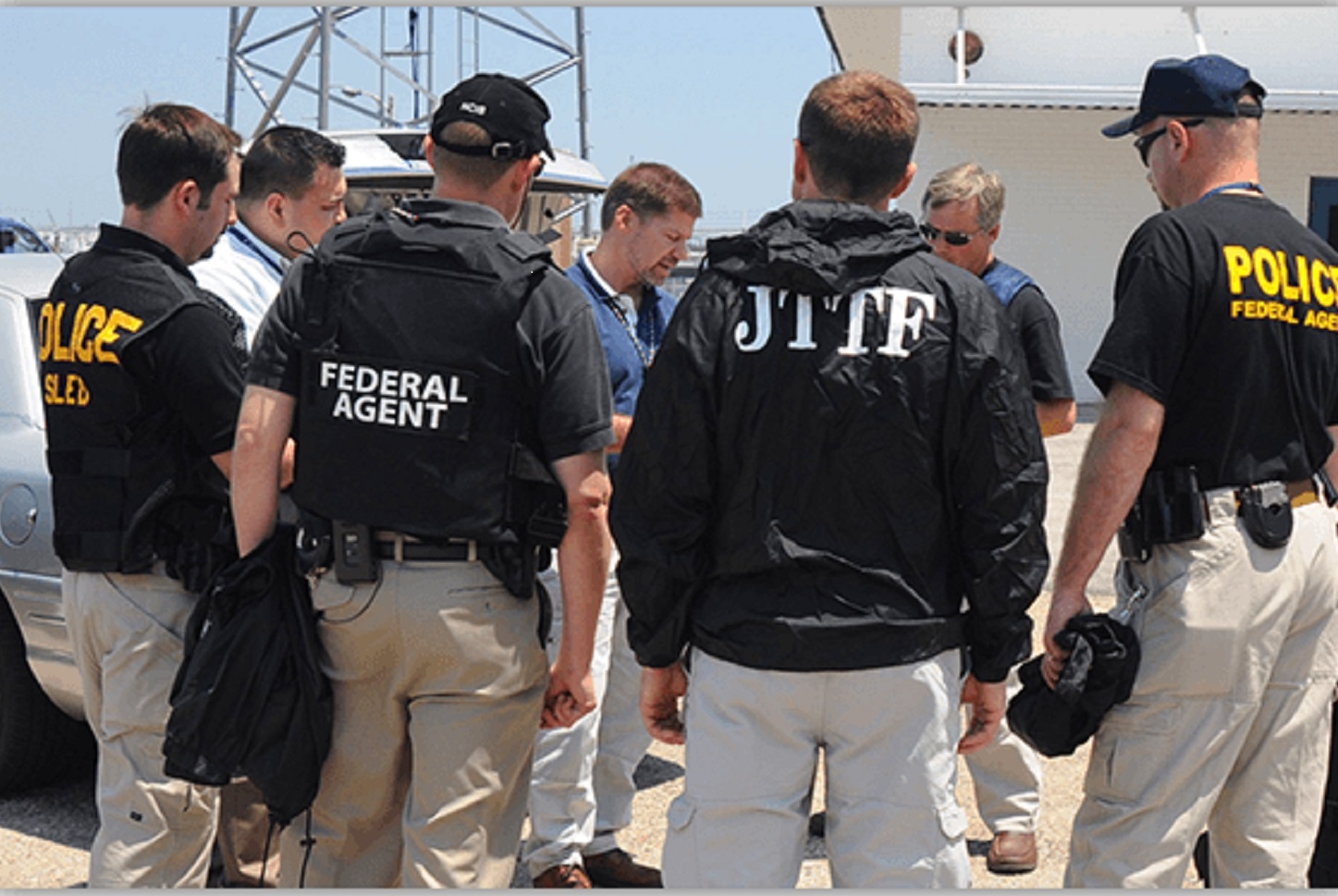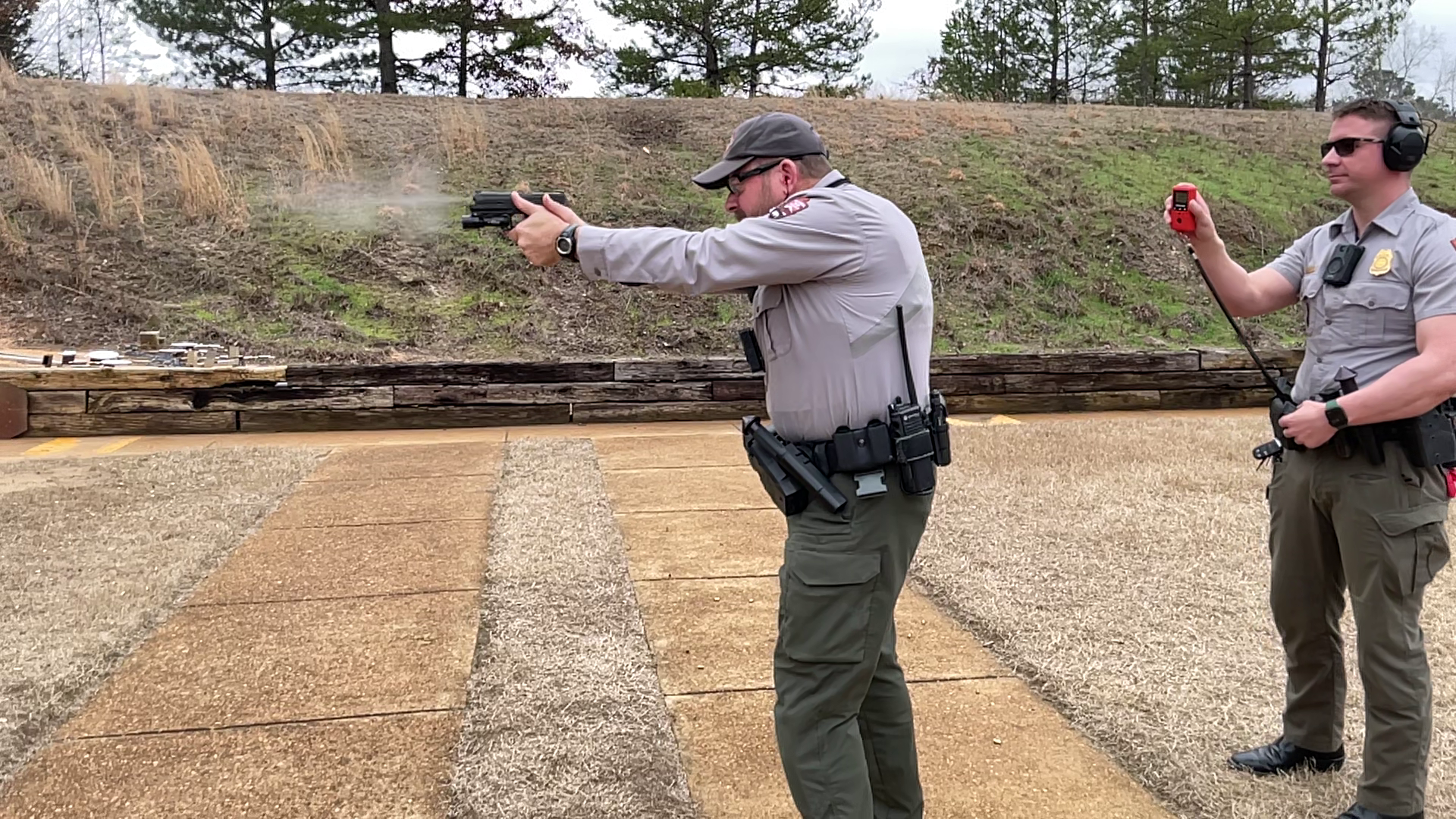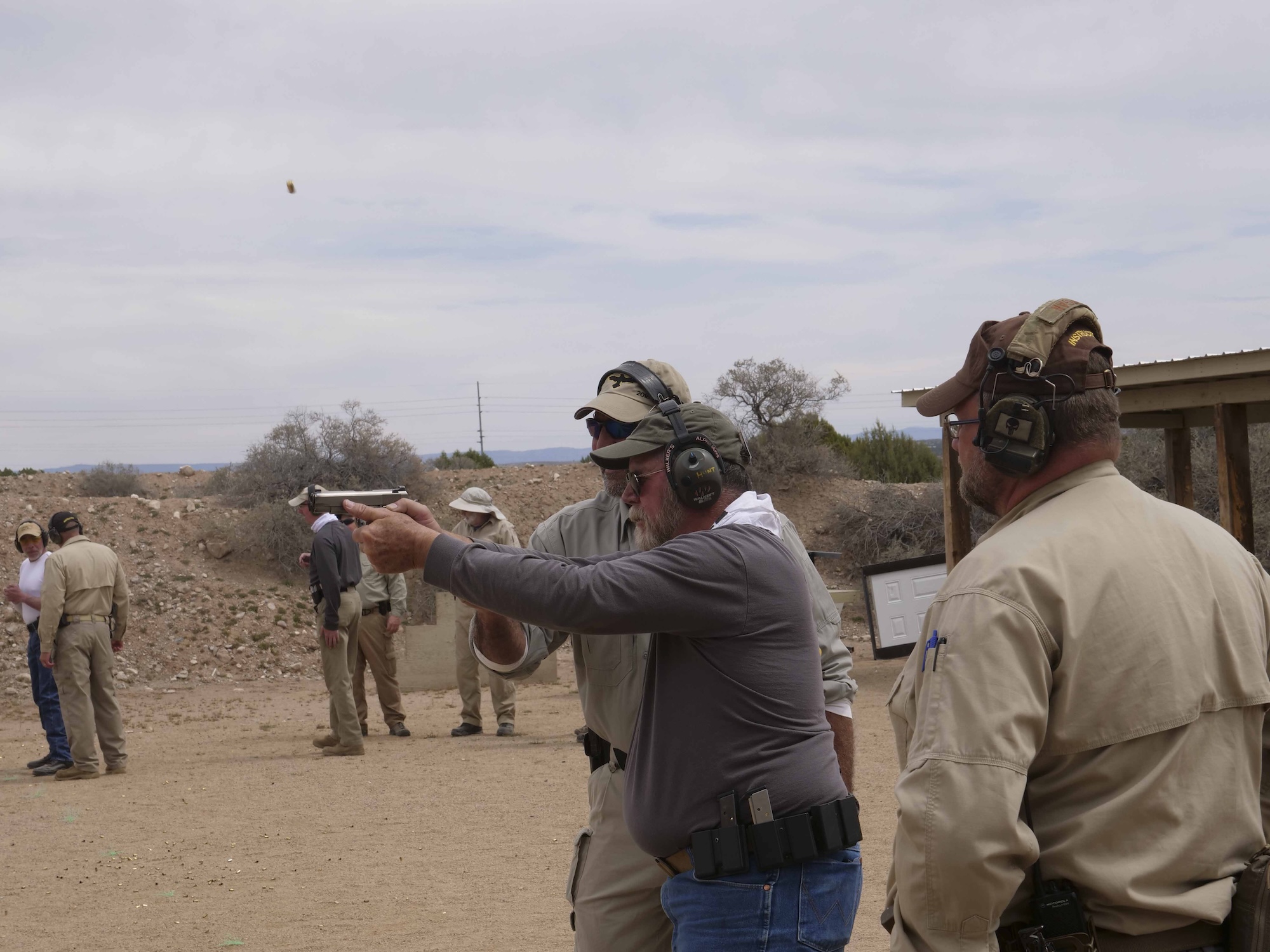
A little gentle hands on it often an excellent training tool
Outside of Law Enforcement, many believe “proficiency” with firearms is a requirement for a police officer. With very few exceptions, nothing is farther from the truth. The standard is “qualified,” not proficient, and department qualifications are generally easy.
Years ago, I spent a day with my friend’s daughter, a 13-year-old with very little shooting experience. By the end of the day, she had completed our department qualification with a 90% score, 70% of which was passing.
My wife, with no handgun experience, attended a local “citizens academy” and shot a 100 percent score after 4 hours of training on a modified qualification course. Neither was even remotely suitable for police work, but qualifying at the top is no more indication that you are suitable than barely making it means you are not. There is a lot more to this job.
Police qualifications are designed so people pass and go back to work. Upper management is often concerned about liability, not proficiency. They emphasize avoiding lawsuits, not creating ability. Don’t get me wrong, dedicated firearms trainers offer much more and take many to exceptional levels of ability (despite the admin), but that is an exception. Many officers dread firearms training, attending only because they must and are getting paid. This presents a real issue for many trainers and can build serious frustration since they both work the same streets. How do you get through it?
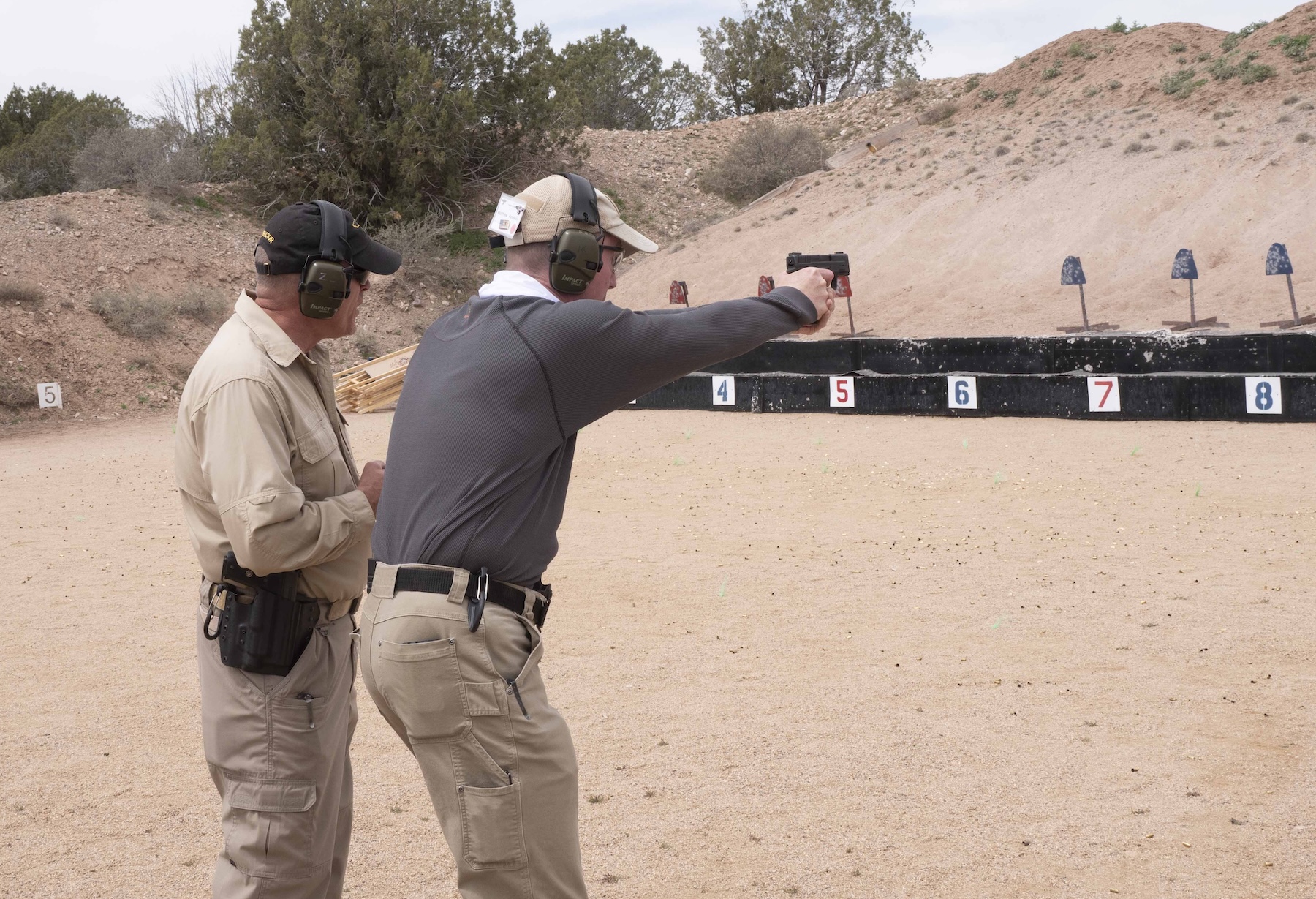
Quietly pointing out what can be improved while reinforcing what is being done right is most effective.
Patience and Understanding Your Role
Knowing your role will be incredibly helpful. Your job isn’t turning everyone into a competitive shooter or “gunfighter.” Your job is to give everyone enough to be the best they can be based on their interests and abilities.
Minimum standards? Absolutely, but that’s all you might get. Training should prepare them to win on the street, and that is more than just shooting. I have seen mediocre officers do extraordinary things in a fight while Mister Tactical curls up in a ball. Meeting them where they are may decrease your frustration while increasing their ability to learn. You must be patient with everyone, especially those who aren’t the top shooters. People become cops for many reasons, and firearms are way down the list; remember that.
Creativity and Flexibility are Critical
Everyone learns differently and sees the world through a different lens. Most firearms instructors are gun people, but most police officers are not. Doing the same thing for everyone does not work. Start by learning something about each officer and how they learn.
I do that day one during every Gunsite Academy class, who are they, what they do, and how I can reach them. Some need to know the details and the whys, and others do not. Be certain you can demonstrate the skills, as many must see it done to figure it out. Keep things simple; find terms that are more practical and universal. Being able to relate what you want through something they already understand is a huge advantage. Know what the goal is and be flexible in getting there. I tend to describe things; for instance, reloads are either slide back or slide forward. You either keep the magazine that was in the gun or not.
I have repeatedly told officers, “Look at what you want to shoot, put the dot or front sight on it and press; the less the gun moves when you do that, the more hits you get.” While it does not sound as cool as other phrases, it is a lot clearer. Honestly, you lose most people after the second or third issue. Get back to that later if they need it. Your goal is to have them hit what they are aiming at on the street; the rest is gravy.
Treat everyone with courtesy and respect.
A while back, a friend -who worked in custody- was almost in tears because they could not pass the qualification. Having shot with her at my USPSA range, I can say there was no reason for that. She told me the rangemaster was constantly berating her, yelling, and threatening her. Even when she was getting the hits, he was chastising her for not doing it the way he did. Knowing this individual, it did not surprise me. They were politically connected and were unable to hit the side of an aircraft carrier. Even worse, they had no real street experience and a complete lack of teaching skills. Unfortunately, this is not uncommon.
After a couple of days of teaching her how to “turn off the noise,” with a few minor corrections based on her size, skill, and weapon, she aced the next qualification. I might have said, “If he has an issue, have him come see me.” I never heard from him.
Never berate your officers, ever!! You will teach nothing, they will learn nothing, and you may get disciplined. You should be. If you are that frustrated, have someone else work with them; it’s not about you. Officers come to you and, in fact, depend on you to keep them alive in a gunfight. If you can’t do that, find another job.
Bottom Line
There are differences between teaching for a department and with paying customers. Frequently, the paying customer is very motivated to learn what you teach. Those who will not learn are rare. It is their money and time; you do the best you can. It can be mission accomplished if all depart with no extra holes. You work with those who are there to learn while keeping the others safe.
The officers you train may be with you at the next gunfight or on the next shift. Their lives, and yours, depend on how well you do your job. Be the very best you can be at your job; it is more critical and less understood than many will know.
(Editor’s note: This is not advocacy for training to the lowest common denominator.)


 (No Ratings Yet)
(No Ratings Yet)